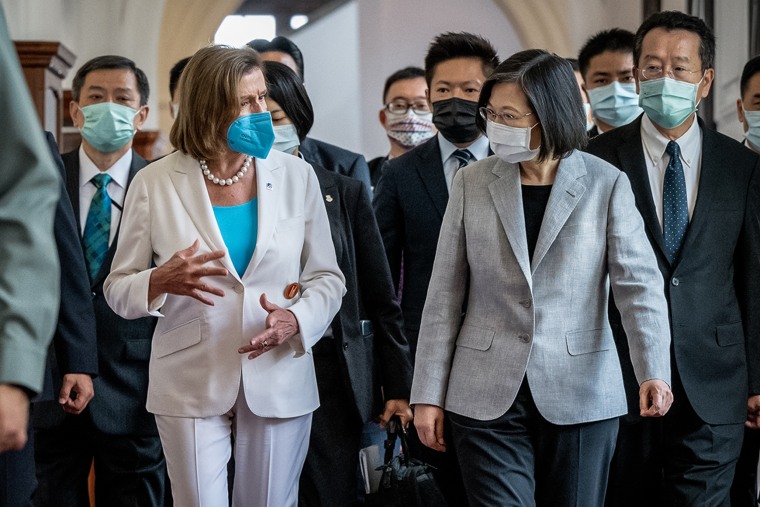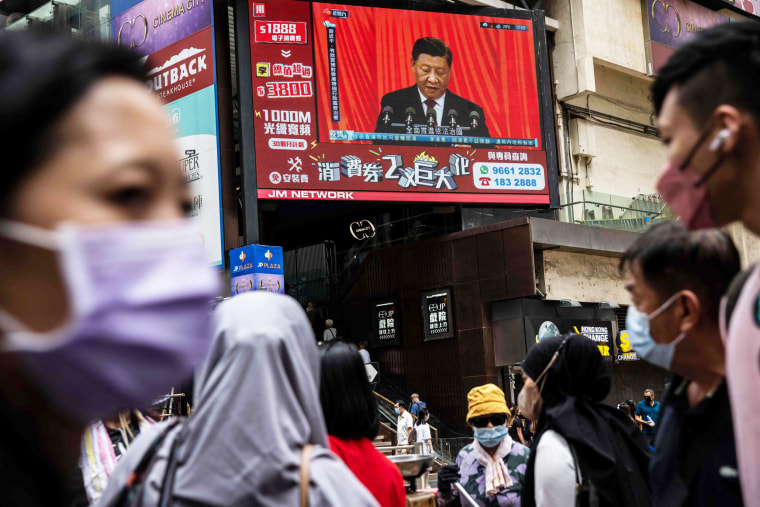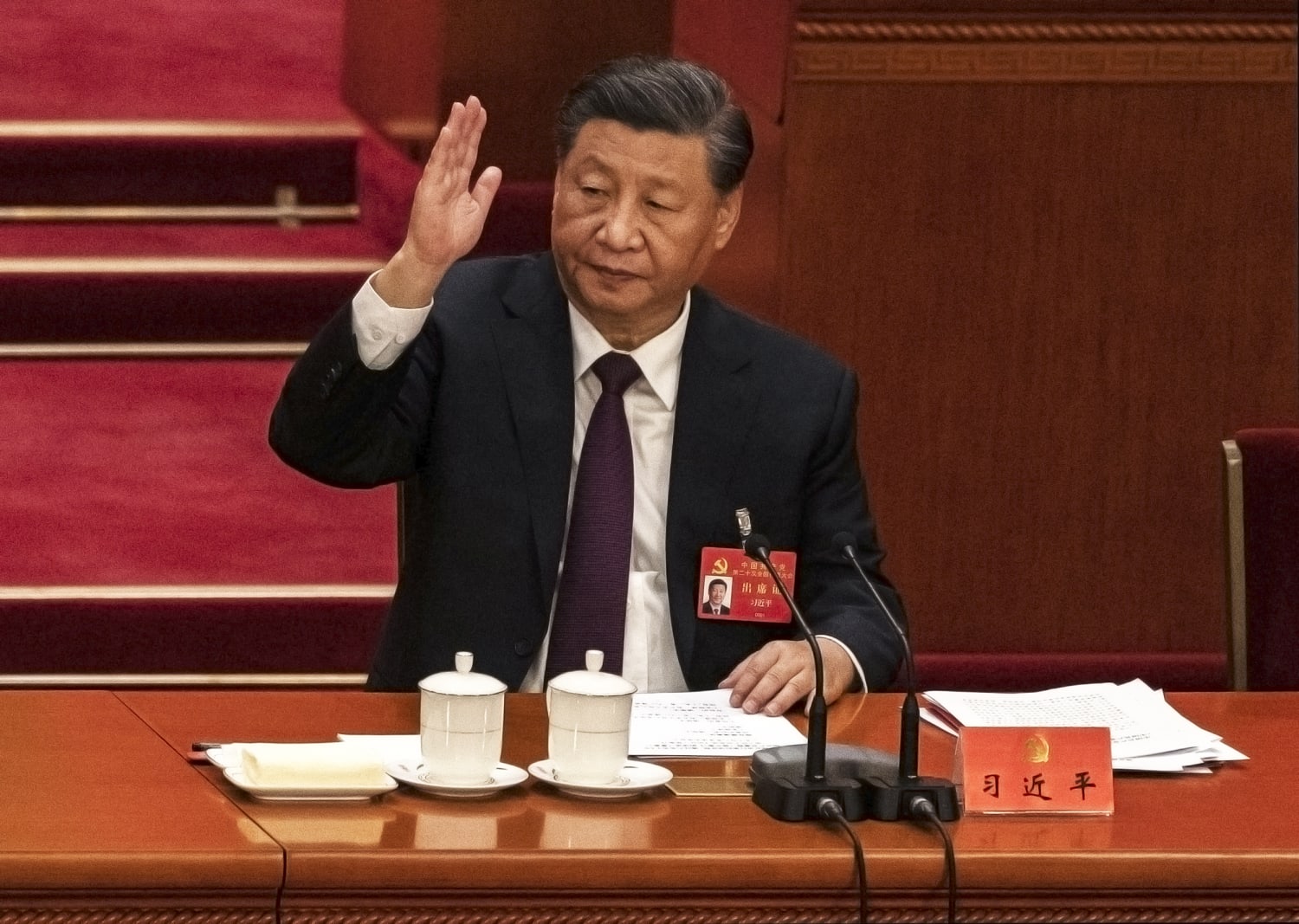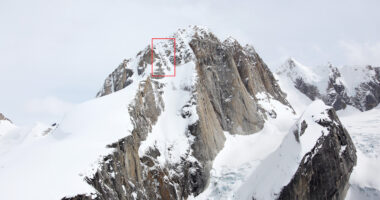HONG KONG — Xi Jinping secured a historic third term as leader of China on Sunday, cementing his status as the country’s most powerful figure in decades and extending his authoritarian rule over the world’s second-largest economy.
Xi’s third five-year term became official when he was first to walk out on stage at the Great Hall of the People in Beijing, where a twice-a-decade congress of the ruling Chinese Communist Party wrapped up on Saturday. He was followed in descending order of rank by the six other members of the new Politburo Standing Committee, China’s top leadership body.
Xi is breaking with tradition by remaining in office, having amended the Chinese Constitution in 2018 to remove the two-term limit on the presidency. The Chinese leader Deng Xiaoping introduced the limit in 1982 to prevent a return to a Mao-style cult of personality.
Here are some takeaways from the weeklong party congress:
Centralized power
The Chinese political system is structured around Xi, 69, who heads the state, military and — most importantly — the Chinese Communist Party. Since coming to power in 2012, Xi has tightened the party’s grip on the state and society, sidelined political rivals and stamped out dissent.
Over the years, Xi — whom the party named a “core” leader in 2016, putting him on par with Mao and Deng — has increasingly surrounded himself with people unlikely to challenge him or his policies.
“What we’re starting to see is sort of an undermining of a lot of the rules, both formal and informal, that were put in place by his predecessors in favor of him getting his allies into the top jobs,” said James Gethyn Evans, communications officer at the Fairbank Center for Chinese Studies at Harvard.
The trend continued Sunday, when the makeup of the new Politburo Standing Committee was revealed. Xi allies Li Qiang, Cai Qi, Ding Xuexiang and Li Xi joined current members Wang Huning and Zhao Leji to form Xi’s inner circle.
Li Qiang, who as party secretary of Shanghai oversaw the city’s devastating two-month Covid lockdown last spring, came out immediately behind Xi, indicating that he will succeed Premier Li Keqiang as China’s No. 2 official.
Xi’s tightened control was already apparent as the highly choreographed congress came to a close on Saturday, with about 2,300 delegates unanimously approving work reports as well as amendments to the party charter that could further increase Xi’s authority.
They also elected a 205-member Central Committee that is stacked with Xi loyalists and no longer includes more moderate leaders like Li Keqiang, the departing premier, and former Vice Premier Wang Yang. Both men had been members of the previous Politburo Standing Committee, which along with the broader Politburo is nominally elected from among the Central Committee membership.
In a moment of unexpected drama Saturday morning, former President Hu Jintao, who had been sitting next to Xi, was escorted out of the hall without explanation shortly after foreign journalists came in. On his way out, Hu, 79, put his hand on Li’s shoulder.
Taiwan remains a flashpoint
Xi’s speech opening the congress on Oct. 16 did not contain any escalation of rhetoric around Taiwan, the self-ruling island democracy that Beijing claims as its territory. The Chinese leader reiterated the goal of peaceful “reunification,” without renouncing the possible use of force.
“Xi has promised essentially more of the same on Taiwan,” Wen-Ti Sung, a Taipei-based expert on U.S.-China-Taiwan relations at the Australian National University, said by email. “Xi still promises no specific timeline on unification.”
But the Chinese leader did put greater emphasis on warning “external forces” to stay out of the Taiwan issue.
U.S. House Speaker Nancy Pelosi’s contentious visit to the island in August has changed Washington’s relationship with both China and Taiwan, said Lev Nachman, an assistant professor at National Chengchi University in Taipei.
“There has kind of been a reset of tone,” he said, “and I think that’s going to not just keep Taiwan in the conversation, but keep it front and center.”

Though there is always the risk of a Taiwan conflict being set off by accident, Nachman said China is unlikely to make a calculated decision to invade anytime soon as it deals with pressing domestic matters like an economic slowdown and growing public frustration with Xi’s strict “zero-Covid” policy.
Nonetheless, Taiwan is very much on the minds of the Chinese leadership, Evans said.
“Xi Jinping has repeatedly said Taiwan’s future is with China,” he said, “and hard-liners within the regime will be pushing for a firmer stance on Taiwan as time goes on.”
International tensions
Growing China-U.S. tensions are based in part on the conviction among many officials that America, as its power is perceived to be waning internationally, is trying to undermine China’s rise on the world stage.
So as China has grown more powerful under Xi, it has also become more assertive in defending its interests and promoting its values abroad. That was underlined last week when a scuffle broke out during a protest outside the Chinese Consulate in Manchester, England, with one protester being dragged inside the consulate grounds and “assaulted,” according to local police. (Chinese officials dispute the account.)
At a news conference in Beijing on Thursday, China’s vice foreign minister, Ma Zhaoxu, said that his country’s diplomacy would “continue to display fighting spirit.”

At the United Nations and other global bodies, countries have often been caught in the middle as China and the U.S.-led West clash over the erosion of civil liberties in the Chinese territory of Hong Kong, rights abuses in China’s Xinjiang region and Russia’s war in Ukraine, as well as economic issues. A U.S. ban imposed this month on the sale of advanced computer chips to China could constrain countries all over the world.
Developing countries, in particular, will find it increasingly tricky to avoid choosing a side, Evans said.
“It’ll be either through pressure from the U.S. or from China very much a case of ‘You’re either with us or you’re against us,’” he said.
Source: | This article originally belongs to Nbcnews.com









